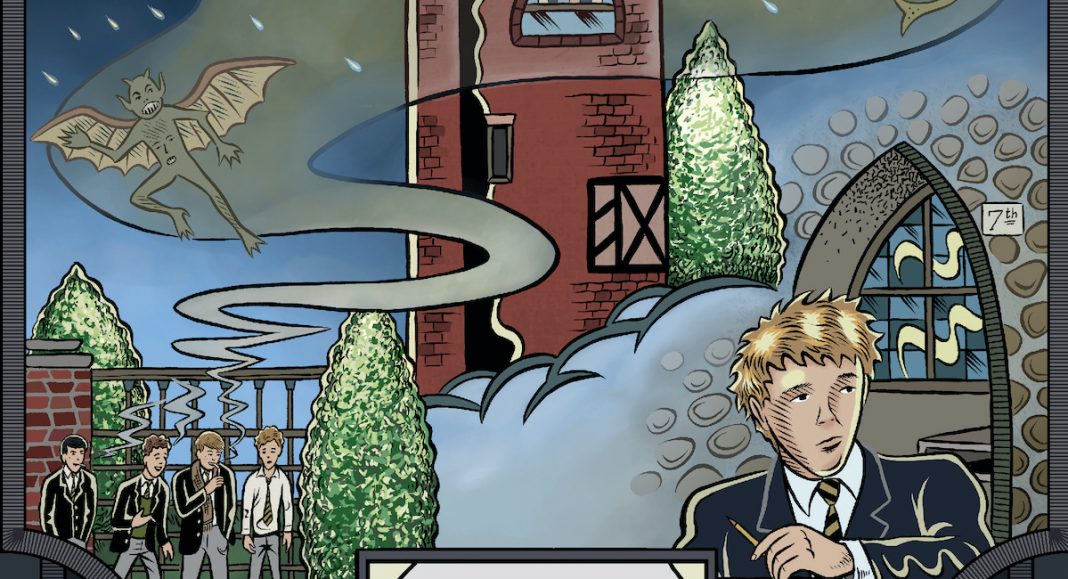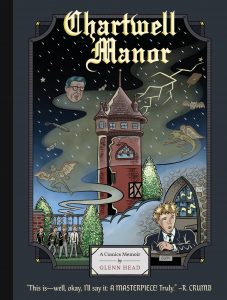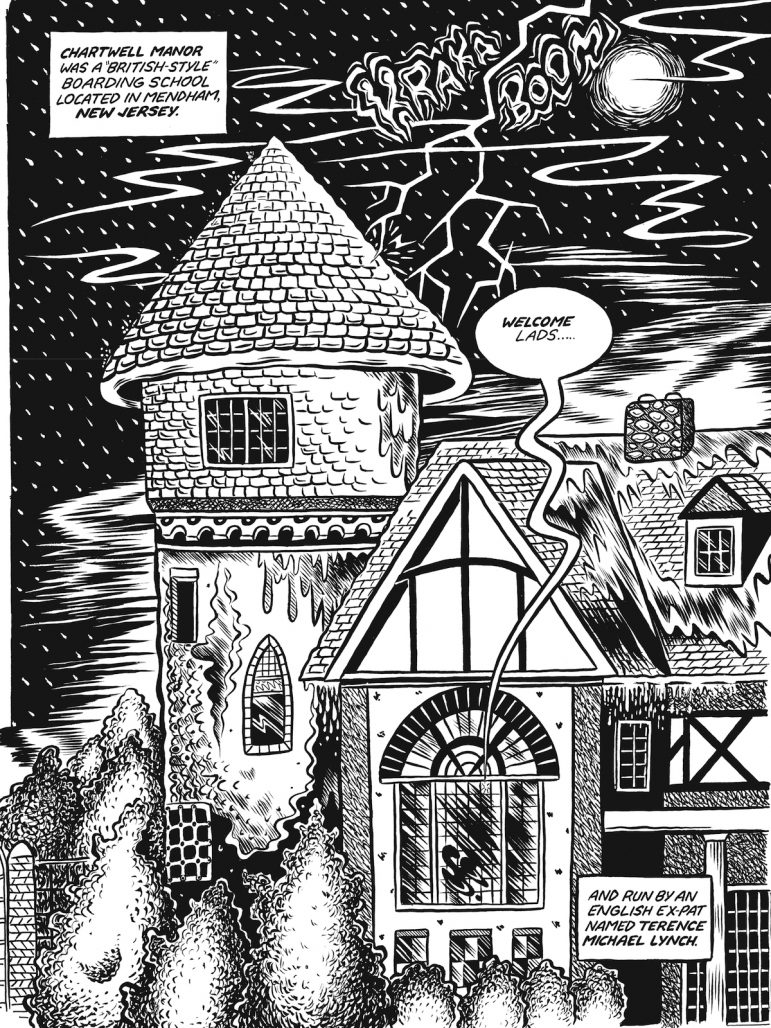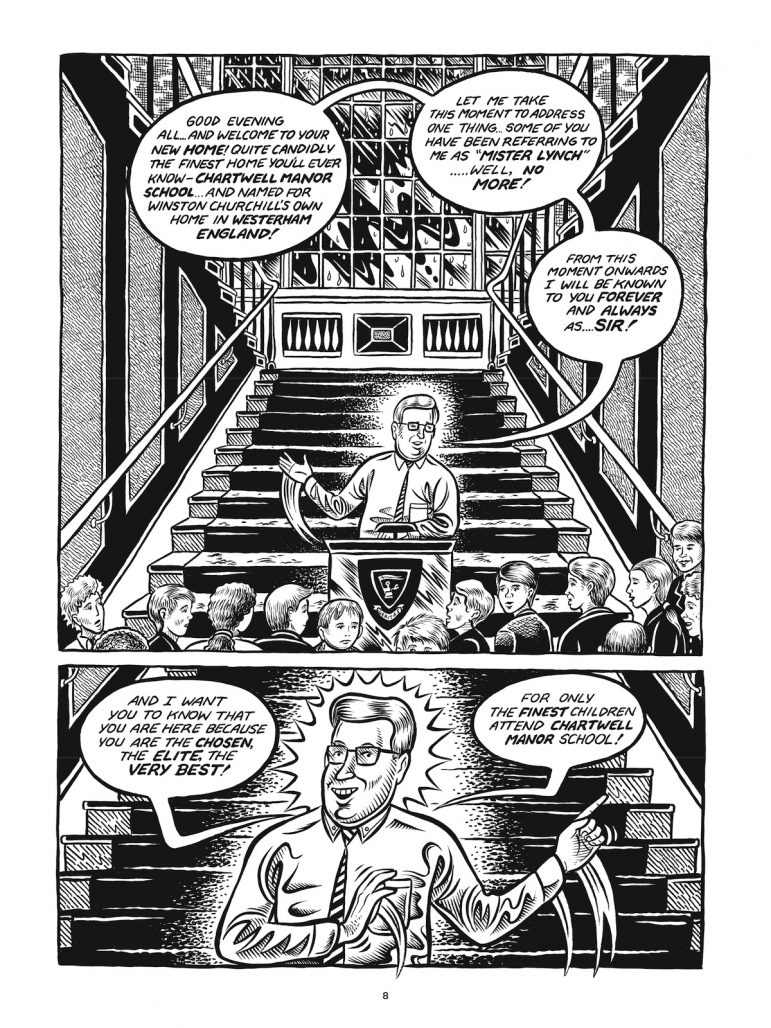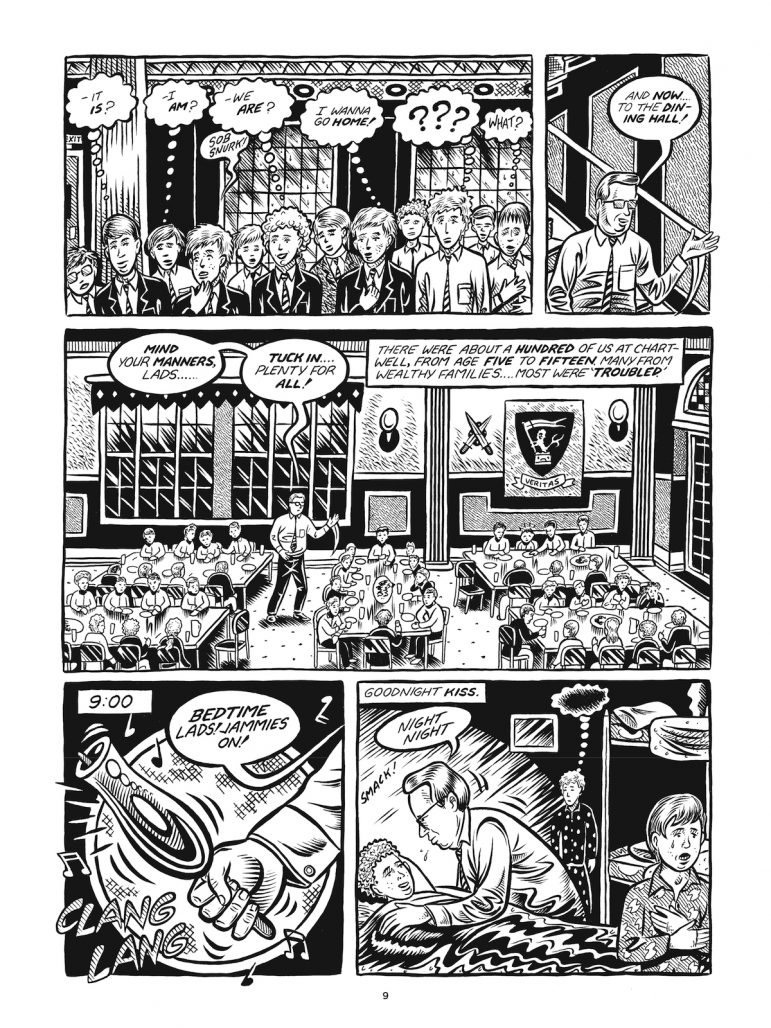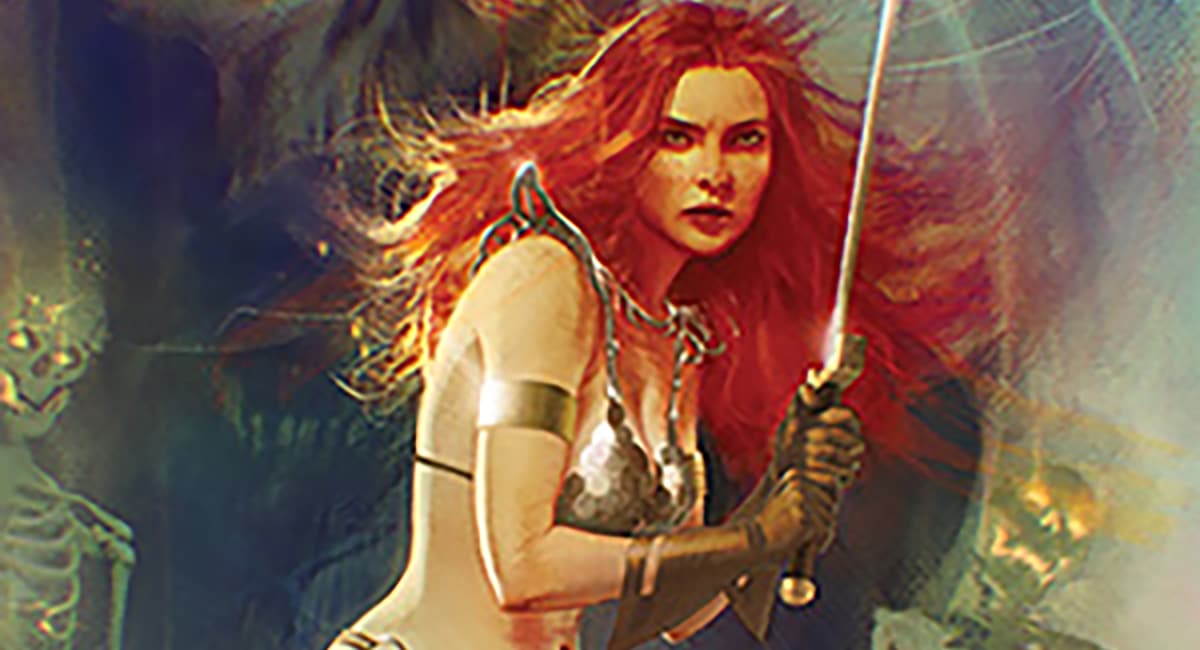In the foreward to his new memoir, Chartwell Manor, cartoonist Glenn Head says the book is “not a recovery memoir. It is a book about scars and how we come to live with them.” The graphic novel tells the story of Head’s time at the titular boarding school, and the abuse that he and his fellow students experienced at the hands of the school’s headmaster. It also follows Head’s life in the years and decades that followed those experiences, and examines how they shaped and impacted both him and those around him.
The Beat spoke with Head about Chartwell Manor, the experience of putting his story down on paper, and what he hopes readers take away from reading the book.
(The following contains discussion of child sexual abuse.)
Joe Grunenwald: Glenn, thank you for taking the time to talk about Chartwell Manor.
Glenn Head: Of course. You’re very welcome. Glad to do it.
Grunenwald: You make pretty clear in the foreward what this book is and what it isn’t. Why did you feel it was important to lay out that distinction for readers up-front?
Head: I think I was considering the possibility that Chartwell Manor might be a tough book for some readers. I was kind of getting that response from some of the people who got an early look at it, including Robert Crumb. He had great things to say about it, but also that. So I was trying to explain that yes, the book may have its moments of brutality, that I make no one (least of all myself) an “innocent” in the story, but that in fact it needed to be unvarnished, and the reader must accept this from the outset. I believe this was the only way to tell the story. You can’t make nice with a story like Chartwell Manor. It’s gotta be tough.
Grunenwald: Obviously your experiences at Chartwell are ones that you’ve been living with for decades. Why was now the right time for you to tell that story publicly?
Head: Well it’s not like I was waiting around for the story to become timely. I didn’t have to. “Chartwell Manor” or something like it is always happening. Usually some kind of patriarchal system operating through secrecy where abuse happens. It doesn’t even have to be with kids, they’re just the easiest targets. But it could be Hollywood, or the military.
Quite simply, I was ready to tell the story. It’s partly that I’d been in therapy for long enough that I’d “processed” the experiences, or at least gotten enough distance from my childhood that I could use it as material; work with it, you know? Like eventually your memories become like a movie running in your head. You’re able to just watch it, right? And like a violent scene in a film it doesn’t have power over you. it’s just a scene. I feel like that sometimes. Not always.
Grunenwald: You’re writing from your own experience, but what sort of additional research, if any, did you do in putting this book together? Did you speak to or get sign-off from any of your former classmates to include them in the story?
Head: I did a great deal of preliminary work for this book, just in the drawing. There are a lot of kids in the book, and that presented a challenge. I’m used to drawing adults, but kids—that’s like the difference between drawing a dog and horse, so I really had to do a lot of advance work on that. Plus, drawing all these kids in school uniforms, blazers—the way they look on kids. I really studied it, and in some cases worked from photos.
I didn’t really contact any of the former students from Chartwell Manor. Strangely, over the course of the creation of the book, some of them reached out to me. A fair number actually, which was an interesting coincidence. In practically every case I changed the names of former classmates. One, who ended up helping to get Lynch convicted and is the hero of the story, allowed me to use his name. One who goes by the name of Ryan in the book, and was a good friend of mine, died a couple of years ago, sadly. The book was dedicated to him, in part. Bryan Saradarian. A good guy.
Grunenwald: What was the process of recounting those events like for you? You said in the foreword that this book is you ‘devouring’ your experience at Chartwell, but I have to imagine it also wasn’t an easy thing to put it all on paper.
Head: Drawing Chartwell Manor was a complicated process. In terms of facing it every day and just drawing it it wasn’t that hard, probably because it just needed to be drawn. There are scenes here that I felt were just waiting for me to draw them–the satanic worship bedtime stories Lynch used to tell us. This stuff is just good to draw from a horror comics point of view. I mean, I grew up with underground comics, and some of this is more batshit crazy than anything I ever saw in Zap comix!
Yes, it was emotionally challenging to draw some of it. Myself getting victimized. But I believe everything I showed was necessary to make the story effective. And I’ll also say that for an artist like myself, it’s ultimately harder for me not to put this on paper. I can be defiant that way.
Grunenwald: I want to ask about your parents. I can’t imagine how frustrating it must have been to try to tell them what had happened to you and for them to react as depicted in the book. Why do you think they reacted that way? Did they ever become more willing to hear about what had happened?
Head: I actually feel that my characters’ struggle to be understood by his parents is the heart of this story, its essence. Lynch is just the catalyst. What interests me, even more than human behavior, is the consequences of it.
Not being understood by your parents is actually way beyond frustrating for a teenager; it’s being told that the reality you speak of is not real. That’s what it felt like. There’s this crazy drunken car crash scene where teenage Glen barely makes it out alive, followed up by a huge blowout with mom. You can feel for him, but her worries are understandable too. Like what’s gonna happen to this kid?
They were more or less incapable of really hearing or knowing about my time at the school. They just couldn’t deal with it. On the rare occasions it came up in my family there was a collective closing down, just too much to bear. Way too much.
Grunenwald: What do you want readers to take away from reading Chartwell Manor?
Head: That no one ever has to go quietly. Nor should they. Your life experiences are your own. By facing up to those experiences you define them, no one else does. Lynch, like various other people in power, might have tried to decide my fate, what I could be, and I have refused to allow that.
Grunenwald: Thanks again for your time, and for the book. It’s a powerful story and I appreciate you having told it.
Head: I’m glad you think so. It was an important book for me to make. Thanks.
Published by Fantagraphics, Chartwell Manor arrives in bookstores next Tuesday, May 25th, and in comic shops on Wednesday, May 26th.


